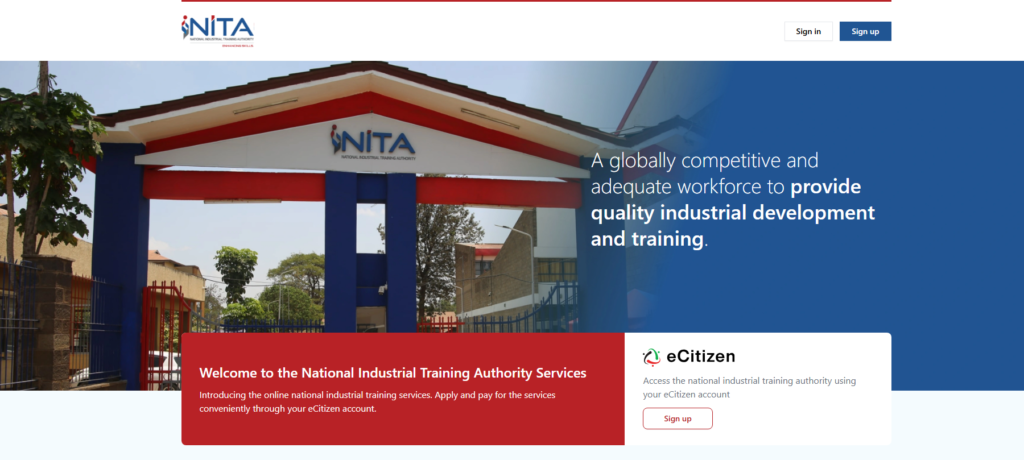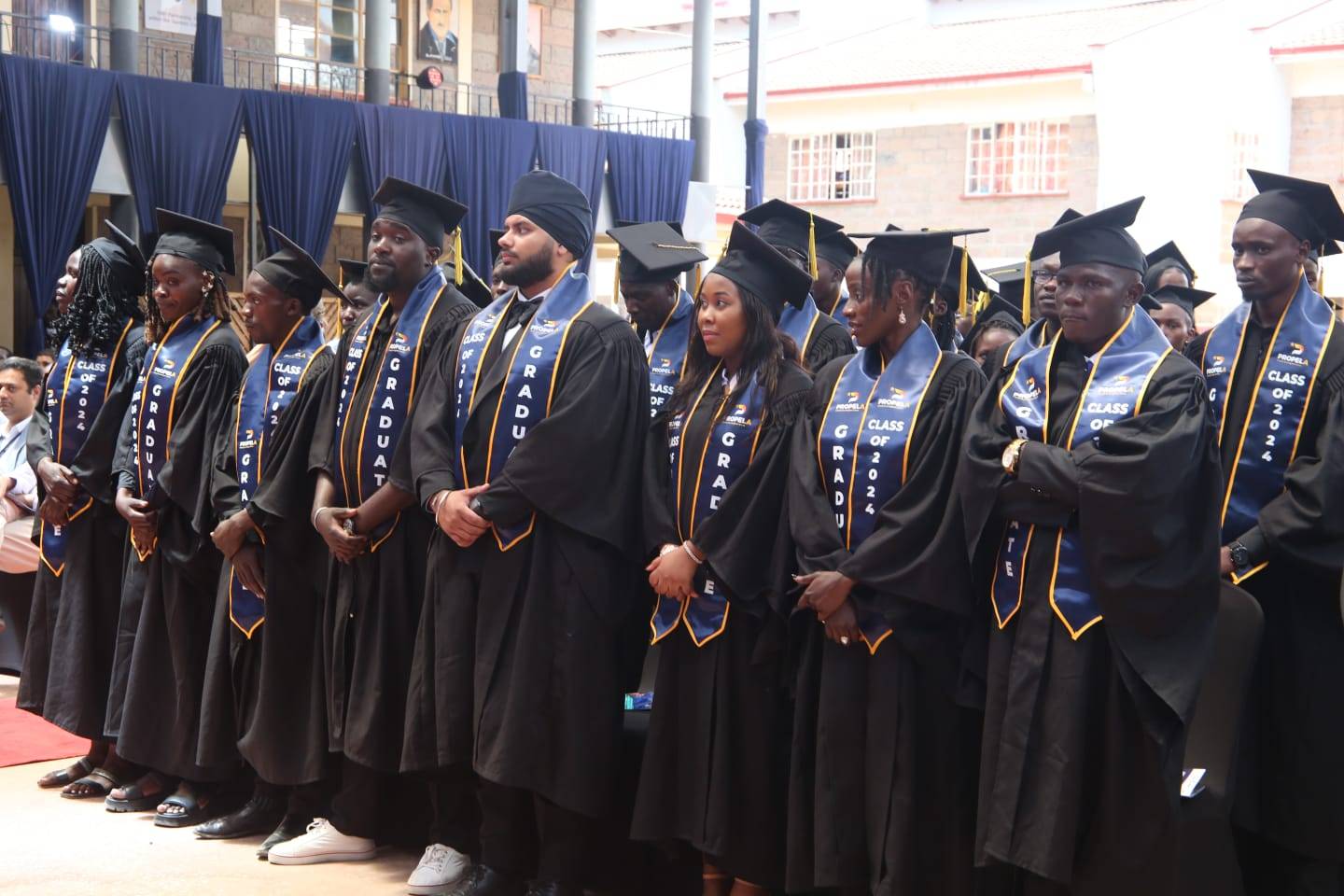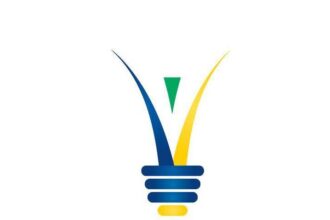Having the right skills is essential in today’s workplaces, especially when searching for employment. For those looking to upgrade their skills in various industries, one helpful education institute that can help you achieve your dreams is the National Industrial Training Authority (NITA). It was established in November 2011 under the Industrial Training (Amendment) Act of 2011 to promote the highest standards in the country’s quality and efficiency of Industrial Training.
Technical and Vocational Education and Training (TVET) is increasingly important in Kenya, and NITA is one of the organizations already established in this niche. There are quite a few reasons why many Kenyans prefer joining NITA, including its range of courses that foster industrial growth and the affordability of studying any program you want, among many other reasons.
If you are planning to join NITA in 2025, understanding the courses on offer is one thing, but knowing the training centers and their respective courses is also essential. Therefore, to help smoothen your admission process to NITA, this guide has covered everything you need to know.
What Courses Does NITA Offer?
The National Industrial Training Authority (NITA) offers a wide range of vocational and technical courses to equip trainees with practical skills for the job market. These courses are structured across various levels, including Craft Proficiency, Industrial Artisan, Skill Upgrading, and Specialized Programs. However, it’s important to note that the specific courses available may vary depending on your chosen NITA Training Center, as seen below:
Nairobi Centre Courses
| Level | Courses |
|---|---|
| Craft Proficiency Courses | – Masonry – Carpentry & Joinery – Plumber/Pipe Fitter – Fitter General – Welding and Fabrication – Motor Vehicle Mechanics – Motor Vehicle Electrician – Electrical Installation – Electronics Mechanic |
| Artisan Courses | – Carpentry & Joinery – Plumbing/Pipe Fitter – Fitter General – Welding and Fabrication – Machinist (Lathe, Milling, Shaping) – Motor Vehicle Mechanics – Motor Vehicle Electrician and Electronics – Panel Beating and Spray Painting – Electrical Installation – Electronics Mechanics |
| Short-Skill Upgrading Courses | – Carpentry & Joinery/Cabinet Making – Plumbing/Pipe Fitter – Painter/Decorator/Polishing – Masonry/Tiling/Block Making – Fitter General – Arc Welding – Gas Welding – Machinist (Lathe, Milling, Shaping) – Motor Vehicle Mechanics – Motor Vehicle Electrician – Panel Beating and Spray Painting – Vehicle Upholstery – Electrical Installation – Electronics Mechanic – Motor Controls – Motor Rewinding/Power Generators Repair & Maintenance |
| Special Courses in Electrical/Electronics Engineering | – Programmable Logic Controllers (PLC) – Solar Installation TI – Solar Installation TII |
| Special Courses in Mechanical/Automotive/Leatherwork | – MIG and TIG Welding – Industrial AutoCAD – High Pressure Welding – On-board Diagnosis & Electronic Diagnosis of Vehicles (OBD) – Leatherwork |
| ICT Courses | – Office Packages and Internet Proficiency – MS Publisher/Adobe PageMaker/Networks – Computer Hardware & Software Maintenance/Microprocessor Technology/Accounting Packages/Computer O.S – Web Development & Graphics Design/Programming |
Mombasa Centre Courses
| Level | Courses |
|---|---|
| Industrial Craft Certificate | – Automotive Engineering and Electronics – Electrical Engineering – Refrigeration and Air Conditioning – Mechanical Engineering – Building Construction – Apparel Technology (formerly known as Fashion Design) – Information Communication Technology (ICT) |
| Industrial Artisan Courses | – Electrical Engineering – Automotive Engineering (Motor Vehicle Mechanics, Motor Vehicle Electrician) – Mechanical Engineering (Machinist, Fitter General, Welding and Fabrication) – Refrigeration and Air Conditioning – Apparel Technology – Building Construction (Masonry, Carpentry & Joinery, Plumbing & Pipe Fitting) |
| Skill Upgrading Courses / Tailor-Made Courses | – Electrical Engineering (Solar PV Installation, Electrical Fitter) – Mechanical Engineering (Sheet Metal, Arc and Gas Welding, Turner/Miller, Pneumatics and Hydraulics) – Automotive Engineering (Motor Vehicle Mechanics, Motor Vehicle Electrician) – Refrigeration and Air Conditioning – Apparel Technology (Soft Furnishing, Embroidery, Curtain Making & Bed Covers) – Building Construction (Carpentry & Joinery, Masonry, Plumber/Pipe Fitter) – Information Communication Technology (Computer Packages, Web Design, Graphic Design [Corel Draw], Photo Editing [Adobe Photoshop]) – Hospitality (Food and Beverage Production, Baking and Pastry) – Hair Dressing – Beauty Therapy |
Kisumu Centre Courses
| Level | Courses |
|---|---|
| Craft Proficiency Programmes | – Masonry – Carpentry & Joinery – Plumber, Pipe Fitter – Painter-Decorator – Cabinet Maker – Upholstery – Fitter General – Welding and Fabrication – Machinist (Lathe, Milling, Shaping) – Motor Vehicle Mechanics – Motor Vehicle Electrician – Plant Mechanics – Power Plant Mechanics – Electrical Installation – Electronics Mechanic |
| Specialized Courses in Building and Civil Engineering Section | – Carpentry & Joinery – Plumbing/Pipe Fitter – Painter/Decorator – Sign Writing – Polishing – Masonry |
| Short/Skills Upgrading Courses in the Mechanical Engineering Section | – Archi CAD |
| Specialized Courses in Mechanical Engineering Section | – Boiler Operation – Fitter General – Arc Welding – Gas Welding – Machinist (Lathe, Milling, Shaping) |
| Short/Skills Upgrading Courses in the Automotive Engineering Section | – MIG and TIG Welding – Industrial AutoCAD |
| Short/Skills Upgrading Courses in Automotive Engineering Section | – Motor Vehicle Repair Engine Service – Motor Vehicle Electrician – Panel Beating and Spray Painting – Refrigeration and Air Conditioning – Motor Cycle Repair and Maintenance |
| Short/Skills Upgrading Courses in Electrical Engineering Section | – Electrical Installation – Electronic Mechanic – Motor Control – Instrumentation Mechanic |
Athi River Centre Courses
Athi-River-COURSES-RevisedTextile Training Institute Courses
| Program | Courses |
|---|---|
| Textile Programs | – Spinning Machine Operator – Weaving Machine Operator – Hand Loom Weaving Course – Processing Machine Operator – Fabric Processing Operator – Tie and Dye and Batik – Hand Screen Printing – Diploma in Textile Technology |
| Laboratory (Tests for Textile Material) | – Yarn Tests (Count, Twist, Direction, Abrasion Test, Crease Recovery Test, Pilling Test, Water Repellance) – Fabric Tests (Moisture Absorbency, Moisture Content, Washing Fastness, Colour Fastness, Light Fastness, Tearing Strength) |
| Clothing Technology Programs | – Dressmaking (Grade I, II, III) – Tailoring (Grade I, II, III) – Sewing Machine Operator for Clothing Industry – Multi-Skill Sewing Machine Operator (Floater) for Clothing Industry – Sewing Machine Mechanic for Clothing Industry – Computerized Embroidery Design – Knitting |
| Leather Goods, Shoes & Accessory Making Programs | – Bag and Fashion Accessories – Footwear and Shoe-Making |
| Hair and Beauty Therapy Programs | – Hairdressing (Grade I, II, III) – Beauty Therapy (Grade I, II, III) |
| Media and Communication Programs | – Electronic Publishing – Graphic Design – Photography – Videography |
What qualifications do you need for NITA courses?
After identifying your desirable courses of choice offered at the institution, it is essential that you also meet its requirements so that you can be accepted to study for that particular program. Each course at NITA has different requirements, and we encourage you to visit their website under the Tracking Centers section to see the course-specific requirements.
Below are some of the general requirements applicable to all courses:
- Crat Proficiency courses require a minimum of KCSE Mean Grade D- (Minus) or equivalent.
- Industrial Artisan Courses only require a KCPE certification, but some don’t
- Skill Upgrading/Short Courses require KCPE or are open-entry
- Specialized Courses may also require certifications such as Government Trade Test III or relevant experience.
In addition to meeting the above general academic requirements when paying, the following documents are needed from each applicant:
- 4 passport-sized photos.
- Copies of National ID, academic/professional certificates, and relevant supporting documents.
NITA Fee Structure
The Fee structure for courses at NITA is specific or varies mostly depending on the program level and the duration of the course, as shown in the table below:
| Course Type | Level | Tuition Fee (Ksh) | Exam Fee (Ksh) | Total Cost (Ksh) |
|---|---|---|---|---|
| Craft Proficiency | Level 1 | 20,800 | 4,500 | 25,300 |
| Level 2 | 18,500 | – | 18,500 | |
| Level 3 | 18,500 | – | 18,500 | |
| Industrial Artisan | Level 1 | 20,800 | 7,500 | 28,300 |
| Level 2 | 18,500 | 6,000 | 24,500 | |
| Level 3 | 18,500 | 5,000 | 23,500 | |
| Skill Upgrading | Level 1 | 11,500 | – | 11,500 |
| Level 2 | 9,250 | – | 9,250 | |
| Level 3 | 11,550 | – | 11,550 | |
| Specialized Courses | Solar PV Install | – | 25,000 (negotiable) | 25,000 |
| MIG/TIG Welding | – | 25,000 (negotiable) | 25,000 | |
| PLC | – | 25,000 (negotiable) | 25,000 | |
| ICT Courses | Office Packages | – | Negotiable | Negotiable |
| Web Development | – | Negotiable | Negotiable | |
| Accommodation (Optional) | Four Weeks | – | 8,500 | 8,500 |
| Six Weeks | – | 12,250 | 12,250 | |
| One Term | – | 25,000 | 25,000 |
Note
We advise you to personally contact various NITA training centers to confirm the specific fee structure for your course, as the fee may be updated without our notice. In addition to the general fee structure, there are other charges, such as the registration fee, which is Ksh 500, Ksh 2,000 for caution money, Ksh 1,500 for medical fees, and certain attachment programs, which also require an insurance fee.
How To Join NITA
If you need to Join NITA today, you can easily do so through the NITA admissions portal, which is available on the eCitizen website. The process involved is as follows.
- Make sure you are registered on the eCitizen portal and proceed to access the NITA portal using the link https://nita.ecitizen.go.ke/
- Access the services section and visit the “National Industrial Training Authority” section.
- Choose the appropriate service, such as “Course Application,” “Trade Testing,” or “Levy Contribution Registration.”
- Proceed to fill out the application form and proceed until you reach the stage that requires you to pay the tuition fees using the payment methods provided

NITA Contacts
In case you need to get personal assistance, you can reach out to NITA directly by using the contacts below:
- Telephone: +254-20-2695586/9
- Mobile No: +254-720-917897,254-736-290676,+254-772-212488
- Email: [email protected]
- Hotline: +254-753-244676
Conclusion
If you are going to join the National Industrial Training Authority in 2025, knowing the courses they offer is one thing, but knowing the admission criteria is what will help you secure a position at the institute. Luckily for you, this guide has covered everything that you need to understand. If you need assistance, let us know in the comment section; otherwise, we wish you all the best.










